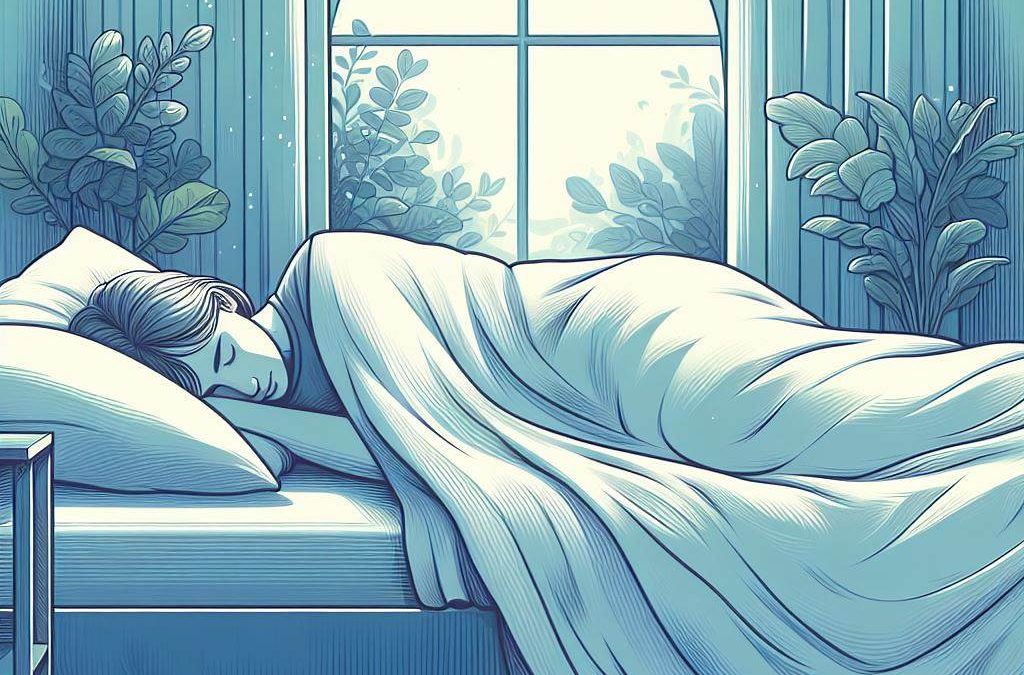
Sleeping Face Down: Is It Good or Bad for Your Health?
Welcome to today’s blog post where we will dive into the topic of sleeping face down and whether it is good or bad for your health. As an expert in the field, I understand the importance of a good night’s sleep and how different sleeping positions can impact our well-being. Sleeping face down is a common choice for many people, but what are the potential effects on our bodies? Through this article, we will explore the advantages and disadvantages of this sleeping position, taking into consideration various factors such as spinal alignment, breathing, and the quality of sleep. So, if you’re curious to know whether sleeping face down is beneficial or detrimental to your health, keep reading to find out!
The Pros and Cons of Sleeping Face Down
When it comes to choosing a comfortable sleeping position, many people have their preferences. While some individuals find sleeping face down to be incredibly satisfying, others may find it uncomfortable or even detrimental to their health. In this article, we will explore the pros and cons of sleeping face down, providing you with the information you need to make an informed decision regarding your sleep posture.
The Pros
Sleeping face down can have several benefits for those who find this position to be relaxing:
- Improved digestion: By sleeping on your stomach, you may experience improved digestion due to the natural alignment of your gastrointestinal tract.
- Reduced snoring: For individuals who snore, sleeping face down can help alleviate this issue by keeping the airways open and reducing the chance of obstruction.
- Comfort for pregnant women: Some pregnant women find sleeping face down can be more comfortable, especially during the later stages of pregnancy when sleeping on the back may be challenging.
The Cons
However, there are also potential downsides to consider when it comes to sleeping face down:
- Strain on the neck and spine: Sleeping with your face down can negatively impact the alignment of your neck and spine, potentially leading to discomfort and pain.
- Restricted breathing: This position may restrict the natural flow of air, making it more difficult to breathe properly during sleep.
- Skin issues: Sleeping face down can cause increased pressure on the face, potentially leading to skin irritation, wrinkles, and acne breakouts.
It’s important to note that the pros and cons of sleeping face down can vary depending on the individual. Factors such as body weight, muscle strength, and existing health conditions can play a role in how this position affects each person.
If you enjoy sleeping face down and do not experience any discomfort or negative effects, there is no need to change your preferred position. However, if you find yourself waking up with a sore neck or experiencing breathing difficulties, it may be worth experimenting with alternative sleep positions to see if they offer more relief and comfort.
Ultimately, the key to a restful night’s sleep lies in finding the position that best suits your individual needs and promotes optimal comfort and health. Whether it’s sleeping face down, on your back, or on your side, listen to your body and prioritize your well-being above all else.
How Sleeping Face Down Affects Your Neck and Spine Alignment
When it comes to sleep positions, there are various preferences and habits. Some people find comfort in sleeping face down, while others prefer sleeping on their backs or sides. While sleeping face down may seem cozy, it can have a significant impact on your neck and spine alignment.
The Natural Curve of the Spine
Our spine has a natural curve that helps support our body and maintain proper alignment. When we sleep face down, this natural curve is often compromised as the weight of our head and the pressure on our neck increases. The spine becomes strained and forced into an unnatural position.
Additionally, sleeping face down can cause the pelvis to tilt, disrupting the alignment of the lower back. This can lead to discomfort, pain, and even long-term spine issues if not addressed.
Increased Stress on the Neck
One of the most significant concerns with sleeping face down is the increased stress it places on the neck. As we lay with our head turned to the side, the neck is rotated for an extended period. This places strain on the neck muscles, tendons, and ligaments, which can lead to stiffness and pain.
Furthermore, sleeping face down often means using a pillow to breathe comfortably. This elevation can further exaggerate the strain on the neck as it angles the head, putting additional pressure on the cervical spine.
Alternatives for Better Alignment
If you frequently sleep face down and experience neck or spine discomfort, it may be worth exploring alternative sleep positions. Here are a few options that can help improve your alignment:
- Sleeping on your back with a pillow that provides proper neck support
- Sleeping on your side with a pillow between your legs for added spinal alignment
- Using a supportive mattress and pillow that promote good posture
By making small adjustments to your sleep position and investing in appropriate bedding, you can alleviate the stress on your neck and spine, promoting better alignment and potentially reducing pain and discomfort.
In conclusion, sleeping face down can have a detrimental effect on your neck and spine alignment. The strain and pressure placed on these areas can lead to discomfort and potential long-term issues. Considering alternative sleep positions and using supportive bedding can help promote better alignment and improve your overall sleep quality.
The Impact of Sleeping Face Down on Breathing
Have you ever found yourself waking up feeling groggy and tired, even after a full night’s sleep? The position you sleep in can have a significant impact on the quality of your sleep, particularly when it comes to breathing. Sleeping face down, also known as stomach sleeping, is a common position for many individuals. However, it may not be the best choice for optimal breathing during the night.
How does sleeping face down affect breathing?
When you sleep face down, your head is turned to the side, and your nose and mouth are pressed against the pillow. This position can restrict airflow, making it more difficult for you to breathe freely. The obstruction of the airways can lead to shallow breathing or even periods of interrupted breathing, such as sleep apnea. These interruptions can cause you to wake up frequently throughout the night, resulting in poor sleep quality and daytime fatigue.
Additionally, sleeping face down can also encourage mouth breathing. The position can make it challenging to breathe through the nose, which is the optimal way to take in oxygen. Mouth breathing can lead to dry mouth, increase the risk of snoring, and even contribute to dental issues over time.
Tips for improving breathing while sleeping face down:
- Elevate your head: Using a pillow that supports your neck and elevates your head can help open up your airways and improve breathing.
- Try a different sleeping position: If possible, consider transitioning to sleeping on your back or side. These positions allow for better airflow and can reduce the risk of breathing-related sleep issues.
- Use a humidifier: Keeping the air in your bedroom moist can help alleviate congestion and make breathing easier while sleeping face down.
Remember that everyone is different, and what works for one person may not work for another. If you continue to experience breathing difficulties while sleeping face down, it’s essential to consult with a medical professional for personalized advice and recommendations.
While sleeping face down may feel comfortable to some, it’s crucial to understand the potential impact it can have on your breathing. By being aware of the potential issues and implementing strategies to improve your breathing, you can enhance the quality of your sleep and wake up feeling more refreshed and energized.
Is Sleeping Face Down Linked to Digestive Issues?
When it comes to sleeping positions, everyone has their preference. Some people find comfort in sleeping on their stomachs, while others prefer sleeping on their backs or sides. However, if you’re someone who enjoys sleeping face down, you may want to consider how this position could potentially impact your digestive system.
The Effects of Sleeping Face Down on Digestion
While there isn’t a direct correlation between sleeping face down and digestive issues, this sleeping position can potentially contribute to discomfort and exacerbate existing digestive conditions. Here’s how:
- Pressure on the stomach: When you sleep face down, your abdomen is pressed against the mattress, increasing pressure on your stomach. This pressure can potentially cause acid reflux or worsen symptoms if you already suffer from conditions like gastroesophageal reflux disease (GERD).
- Restricts natural digestion: Sleeping face down can restrict the natural movements of your digestive system, including the process of peristalsis. Peristalsis refers to the wave-like muscle contractions that push food through the digestive tract. Restricting these movements may lead to difficulties in digestion and potentially contribute to constipation or bloating.
Improving Digestion While Sleeping Face Down
If you find it difficult to change your preferred sleeping position, there are some tips you can follow to minimize potential digestion discomfort while sleeping face down:
- Elevate the upper body: Placing a pillow or two under your upper body can help elevate your torso slightly, reducing the pressure on your stomach and minimizing the risk of acid reflux.
- Support your spine and hips: Consider using a supportive mattress or placing a pillow under your pelvis to maintain proper spinal and hip alignment. This can help prevent any additional strain on your digestive system.
- Allow for digestion time: Avoid eating large meals close to bedtime. Instead, try to finish your last meal of the day at least two to three hours before going to bed. This allows for proper digestion before laying face down to sleep.
Remember, while these tips may help alleviate potential digestive discomfort, it’s always a good idea to consult with a healthcare professional if you’re experiencing persistent digestive issues or discomfort while sleeping face down.
In conclusion, while there isn’t a direct link between sleeping face down and digestive issues, this position can potentially contribute to discomfort and worsen existing digestive conditions. By following the tips mentioned above, you can minimize any potential negative impacts and enjoy a more comfortable sleep.
Effects of Sleeping Face Down on Skin Health
Increased Risk of Acne Breakouts
Sleeping face down can potentially contribute to the development of acne breakouts. When you rest your face directly on the pillow, it can trap oil, dirt, and bacteria against your skin, leading to clogged pores. This, in turn, increases the likelihood of acne flare-ups.
Formation of Sleep Lines and Wrinkles
Constantly pressing your face against a pillow while sleeping face down can result in the formation of sleep lines and wrinkles. These lines are caused by the repetitive compression of your skin, which can result in decreased collagen production over time. Collagen is essential for maintaining the elasticity and firmness of your skin.
Potential for Exacerbating Rosacea and Eczema
If you already have skin conditions like rosacea or eczema, sleeping face down can exacerbate the symptoms. The friction between your skin and the pillowcase can cause irritation and inflammation, leading to redness, itching, and a worsening of the condition.
Dark Circles and Puffy Eyes
Sleeping face down can impede proper blood circulation to your face, resulting in the appearance of dark circles and puffy eyes. This position may also lead to fluid retention in the under-eye area, making the problem more pronounced.
Increased Likelihood of Skin Infections
By pressing your face against a potentially dirty pillowcase or surface, you expose your skin to a higher risk of bacterial or fungal infections. When your skin comes into contact with these microorganisms, it can lead to various skin issues, including infections, redness, and inflammation.
It’s crucial to be mindful of your sleeping position and its potential impact on your skin. If you prefer to sleep face down, exploring alternative pillow materials, such as silk or satin, can help reduce friction and minimize the risk of skin irritation and breakouts. Regularly washing your pillowcases and keeping them clean is also essential for maintaining good skin health.
Remember, while sleeping face down may offer comfort and relaxation, it’s essential to prioritize the long-term health of your skin. Finding a balance between sleep position and skincare routines can help you achieve healthy, glowing skin.
Conclusion
In conclusion, sleeping face down can have both positive and negative effects on your health. While it may provide temporary relief for snoring or sleep apnea, it can lead to various health issues in the long run. Sleeping in this position restricts proper breathing, causing strain on the neck, spine, and muscles. It can also increase the risk of developing wrinkles and blemishes due to the pressure on the face. It’s important to prioritize quality sleep and choose a sleeping position that promotes proper alignment and comfort. If you find it difficult to change your sleeping habits, it’s best to consult with a healthcare professional for guidance on the most suitable position for your individual needs. Remember, a good night’s sleep is crucial for overall well-being, so make sure to prioritize it for a healthier lifestyle.
Frequently Asked Questions (FAQs)
Is it good for you to sleep face down?
While sleeping face down may be comfortable for some individuals, it is generally not considered the best position for a good night’s sleep.
What are the potential drawbacks of sleeping face down?
Sleeping face down can cause strain on your neck, back, and spine. It may also lead to wrinkles and acne due to increased pressure and friction against your face.
Are there any benefits to sleeping face down?
Sleeping face down can help reduce snoring and alleviate mild sleep apnea symptoms. Additionally, some people find it more comfortable for their preferred sleeping position.
How does sleeping face down impact breathing?
Sleeping face down can restrict your breathing by compressing your chest and putting pressure on your lungs. This can potentially lead to shallow breathing or difficulty getting enough oxygen during sleep.
Can sleeping face down cause digestive issues?
Yes, sleeping face down can potentially lead to acid reflux and heartburn, as the position can put pressure on your stomach and esophagus.
How can I improve my sleep if I prefer sleeping face down?
If you find sleeping face down most comfortable, try using a supportive pillow specifically designed for stomach sleepers. You can also consider placing a pillow under your pelvis to reduce strain on your lower back.



